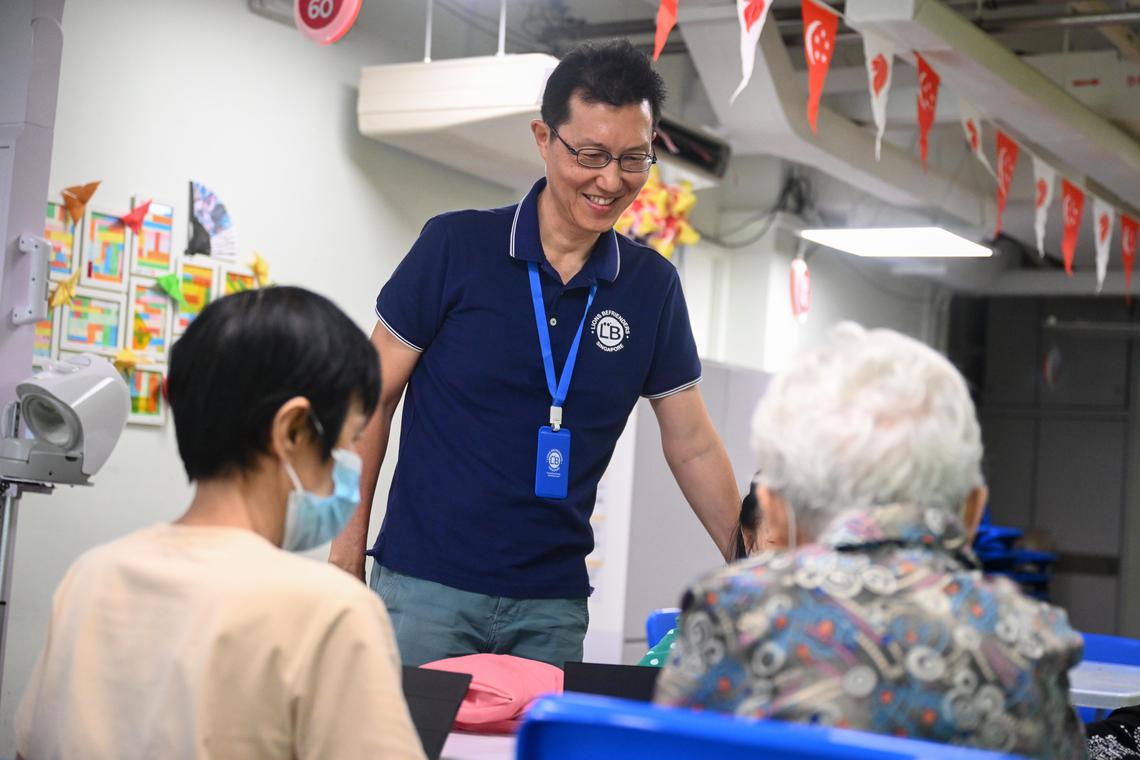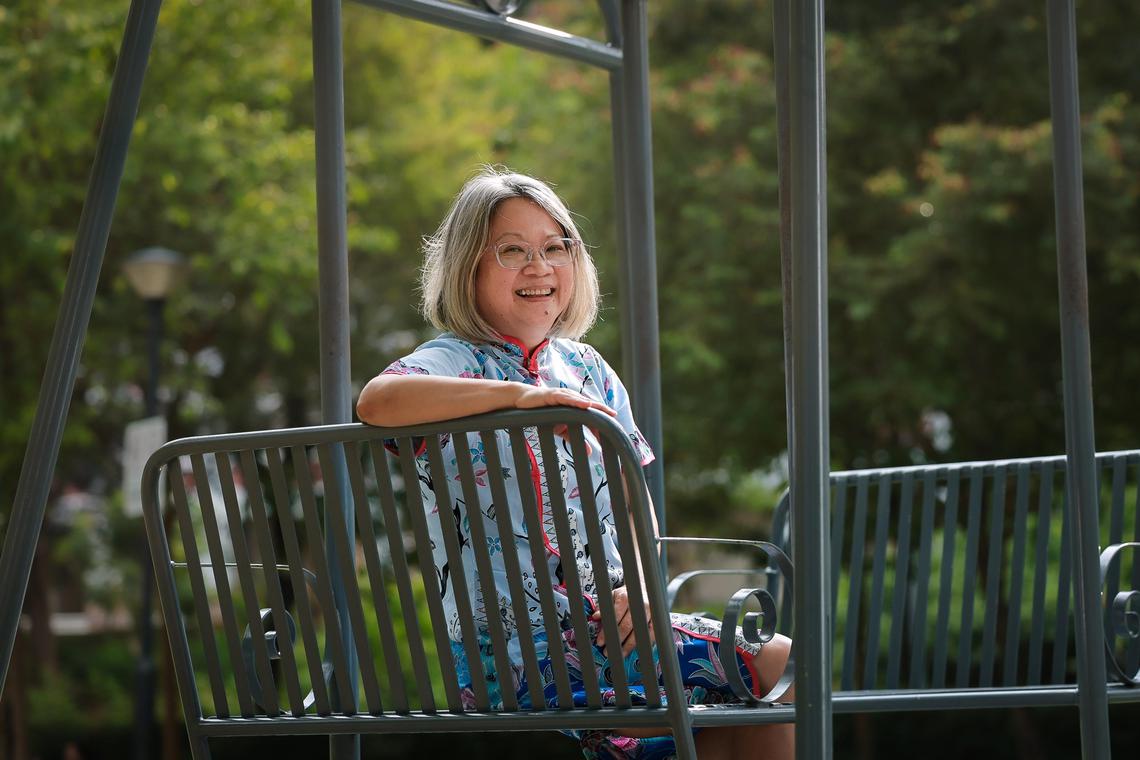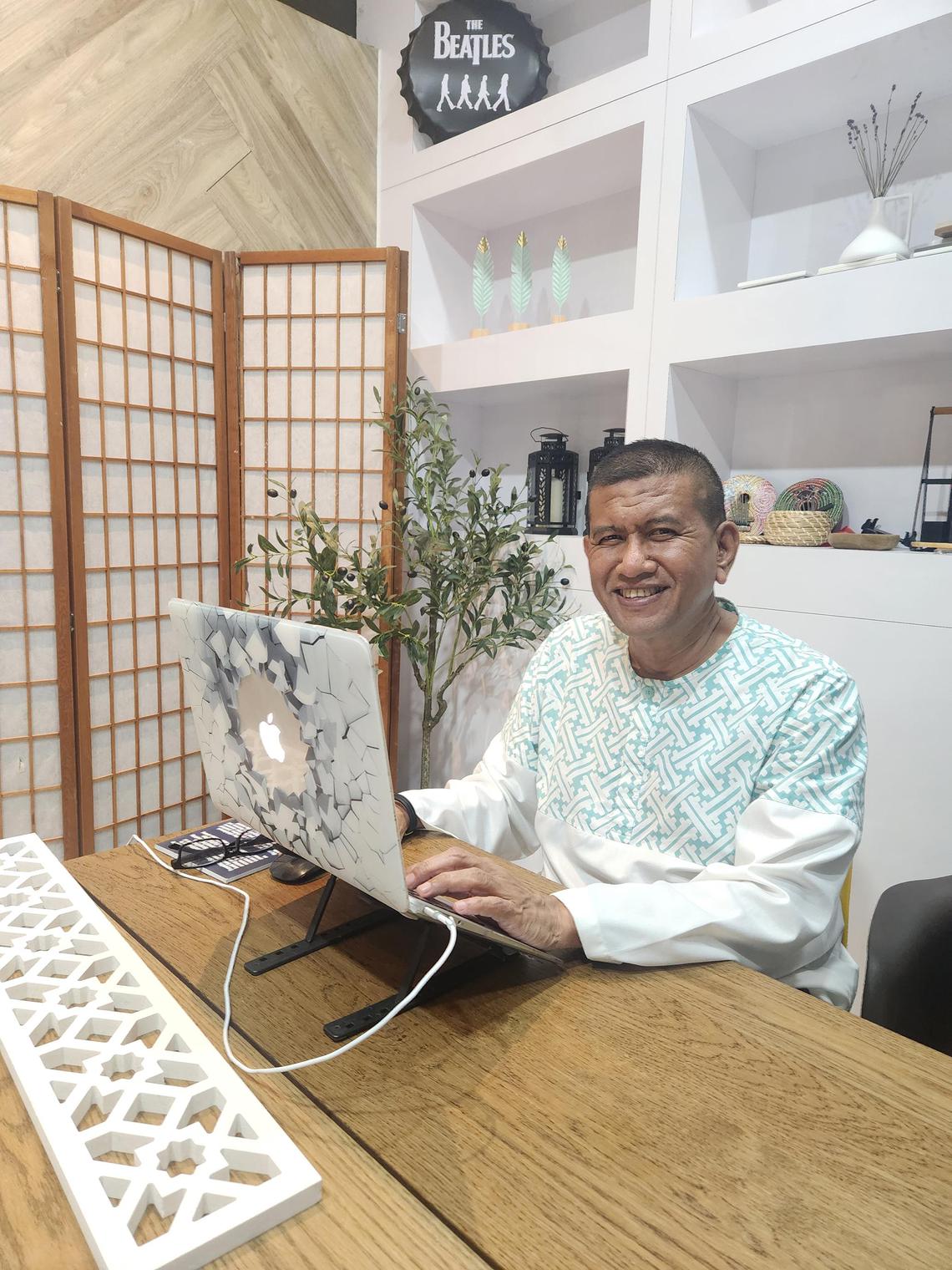SINGAPORE – When Mr Alan Chen, 57, changed careers in April 2025, it was not by choice.
After his 27-year career in IBM ended in December 2024, he received a severance package as part of a retrenchment exercise. His last position was regional human resources partner at the global technology company, where he also worked in areas like project management and business development.
He was optimistic about the future, even though the change was involuntary.
“Maybe it was a sign for me,” he says. “It gave me the push to choose something I liked, which involved helping others. I looked forward to doing something different.” He is married to a 56-year-old marketing manager and the couple have three adult children in their 20s.
Certified as a personal trainer, Mr Chen has been volunteering over the past two years, conducting exercise sessions with different groups like seniors and children with autism.
Through a jobs portal at the Centre For Seniors, a non-profit that promotes the well-being and employability of older persons, he found full-time work as an executive at an Active Ageing Centre in Tampines, run by Lions Befrienders, a voluntary welfare organisation.
For the last three months, he has adapted well to his new sector, organising programmes and outreach services for seniors in the neighbourhood.
In switching to another line of work, he took a huge pay cut. His current salary is “not even 20 per cent” of his previous pay, but he had already adjusted his expectations. He has investment policies with payouts that will be disbursed until he is 70.
“Financially, I’m doing okay. This, to me, is a meaningful job,” he says.

Mr Alan Chen has adapted well to his new sector, organising programmes and outreach services for seniors in the neighbourhood.
ST PHOTO: AZMI ATHNI
Several organisations report that a growing number of older persons, who have not reached the official retirement age of 63, are showing interest in reskilling and other programmes geared towards career changes.
The Centre For Seniors (CFS), located in Bishan, runs courses that help mature workers explore new career options, plug knowledge gaps and boost their digital literacy and other soft skills.
The number of persons aged 50 and above who enrolled in the centre’s career-related training rose from 800 participants in 2013 to more than 1,500 participants in 2023, an increase of nearly 88 per cent over 10 years, says its executive director Sanchita Singh.
Common reasons for seeking a career change later in life include a desire to give back to society through roles in social services, education or eldercare; early retirement or retrenchment; health or caregiving needs that prompt a shift to more flexible work; as well as a “lifelong learning mindset”, where some pursue new interests and fields of work, says Ms Singh.
Meanwhile, the wide range of career support programmes offered by Workforce Singapore (WSG), a statutory board under the Ministry of Manpower, includes the increasingly popular Career Conversion Programme (CCP), which spans about 30 sectors. This scheme helps employers broaden their talent pool by reskilling existing employees or mid-career new hires to take on job opportunities with long-term prospects for progression.
Close to 7,700 people participated in CCPs in 2024, compared with about 4,700 participants in 2022, says Ms Gillian Woo, director of the Enterprise Programmes Division at WSG. This represents a rise in participation of nearly 64 per cent over two years.
Since 2021, around 45 per cent of CCP placements are aged 40 and above, Ms Woo adds. Among them, the top three sectors represented are food services, electronics and infocomm technology.
Ms Rozita Yazid, a senior career coach at WSG, says: “Career changes later in life are becoming increasingly common in Singapore’s dynamic economy.
“We have observed that successful transitions often involve combining existing competencies with new skills rather than starting completely fresh. It’s important to take time to explore what genuinely interests you before switching careers.”
Over at Collective Change Institute, which specialises in coaching services and certification, co-founder Lin Tan says the Covid-19 pandemic drove more individuals – including senior corporate leaders, vice-presidents, managing directors and heads of departments – to explore or embark on a career switch.
She says: “Covid and its retrenchment rates shocked people into realising that they may not always have their jobs. People are trying to find something more congruent with their values when it comes to their careers and life work.”
What is it like to change careers in middle age and beyond?
In interviews with people in their 40s to 60s who have successfully made the leap, The Straits Times found that having a solid financial buffer was an important factor, although not all have that luxury.
Turning one’s life around as an older person poses significant challenges, such as having to build a new identity and facing age-related bias, say experts.
For many, the dream of pursuing their passion, via a second career in their 50s, was planted years earlier.
Ms Cheong Choy Kiew, 64, started her coaching sole-proprietorship, Batang Tiga Consulting, in 2019 at the age of 58, after spending some 28 years in AstraZeneca, a multinational biopharmaceutical firm. She had held a variety of positions there, starting off as a statistician, then moving on to managing and auditing clinical trials across the Asia-Pacific region, directing clinical operations, then leading teams in Japan and China.
At the age of 43, she was assigned an executive coach by AstraZeneca as part of a leadership development programme, who inspired her to take up coaching and eventually build a second career.
“Through coaching, I realised that I was letting life come to me, going with the flow, rather than taking charge of my own life. I was happy being given work to do, but I realised I could do a lot more,” she says. “I wanted to develop people to be the best version of themselves.”
“Be clear about what it is you are good at – your vision of yourself – and be clear about your finances,” she advises those contemplating a similar sea change.

At the age of 43, Ms Cheong Choy Kiew was assigned an executive coach by AstraZeneca as part of a leadership development programme, who inspired her to take up coaching and eventually build a second career.
ST PHOTO: GAVIN FOO
Married with an adult son, she now offers leadership, team and executive coaching. She and her husband have a second property they rent out, savings and profits from AstraZeneca shares she sold when she left the company.
And she is reconciled to her coaching business bringing in “pocket money” rather than the corporate pay cheque she once received.
Former deputy superintendent of police Kamaruzaman Gaffar, 60, enjoyed his 37 years in the police force. But to live out his dream, he knew he had to wait for his pension, which he received at age 55 upon opting for early retirement.
For several years prior, he took courses to upgrade his skills in digital marketing, business management and product pricing.
“All along, I’d been a salaried worker. I hoped to be an independent entrepreneur. I have my pension as a backup,” says the marketing director of XL Design Build, which he launched five years ago, together with a mentor in the construction industry. The firm provides construction, design, maintenance and repair services for outdoor and indoor spaces, and he hires a team of freelance workers.

Kamaruzaman Gaffar took courses to upgrade his skills in digital marketing, business management and product pricing.
ST PHOTO: VENESSA LEE
Mr Kamaruzaman, who is married to a housewife and has 18-year-old twin daughters, now has two other businesses providing Islamic-based services. He does not earn as much as his previous salary, but there are other dividends to going it alone.
“Being your own boss, you decide your own direction, whether to generate more income or to have more work-life balance. So far, I have a balance of both,” he says.
Associate Professor Trevor Yu, from Nanyang Business School at Nanyang Technological University, says it is becoming more common for both white- and blue-collar professionals to change careers mid-stream.
He says: “Career changes in white-collar jobs are driven by artificial intelligence (AI) and rapid technological advancement that are replacing routine aspects of professional jobs that do not require high levels of creativity, innovation or human interaction.
“Similarly, those in blue-collar jobs are also facing the need to consider change due to the replacement of manual labour with automation and AI-powered job replacement.”
However, he cautions: “From a learning and uncertainty standpoint, it is still hard to pivot to an entirely new career unless one is hugely dissatisfied with the current situation.”
Also, the concept of pivoting, as viewed by white-collar workers, is markedly different from that of blue-collar workers, who may have different conceptions of what constitutes a career. Lower-income workers often have to pivot around different trades, skill sets and industries.
Ms Kaylee Kua, executive director of Daughters Of Tomorrow (DOT), a non-profit that empowers lower-income women to gain sustainable employment, says the “initial motivation” for the women whom DOT supports is often “about survival and providing for their loved ones, though over time, many begin to see the possibility of building a fulfilling career that reflects their own aspirations as well”.
Many of these women, who may not be highly educated, “have to quickly learn and adapt to the demands of different industries”, she adds.
Ms Suriyati Karsan, 42, is a beneficiary of a confidence-building, job readiness programme at DOT.

Ms Suriyati Karsan, now working as a baker at Auntie Anne’s, is a beneficiary of a confidence-building, job readiness programme at Daughters Of Tomorrow.
ST PHOTO: ARIFFIN JAMAR
She has had more than 17 jobs ranging in sectors like warehousing; food and beverage; hotel services like housekeeping and banquet service; and retail, since she left school at Secondary 2. These are mostly contract jobs for a specific time period. She is now working as a baker at Auntie Anne’s, a pretzel chain.
She has four children aged 26, 25, 20 and 10, and is married to a taxi driver, who is 52.
Unlike others who pivot in a big way from one career to another, her working life consists of “a lot of pivoting”, she says, whether it is learning to operate warehousing machinery; mastering how to make and serve baked goods; or working as a store assistant.
“I think mine is not a career, it’s working for my family,” she says.
Having an office job is a “dream”, she adds, but she has another goal to save money for. “For more than 20 years, I’ve been living in a rental flat. I want to achieve something first. I want to buy a place of my own,” she says.
Ms Rozita Yazid, a senior career coach at Workforce Singapore, suggests five key tactics for mature professionals contemplating a career switch:
-
Start with a well-planned transition strategy, not an impulsive change. Take time to research your target industry, understand its requirements and map out a realistic timeline for the transition. Your wealth of work experience is valuable – use it to create a thoughtful roadmap.
-
Build your financial foundation first. Career transitions often involve an initial reduction in compensation, so ensure you have adequate savings to sustain yourself. Your years of experience might have given you some financial stability – leverage this advantage to make a more comfortable transition.
-
Focus on identifying and pursuing work that genuinely energises you. At this stage in your career, job satisfaction becomes increasingly important. Your extensive work experience helps you better understand what truly motivates you – use this self-awareness to guide your choice.
-
Leverage your transferable skills and professional maturity. Focus on competencies that are not industry-specific, such as leadership, problem-solving and communication. Consider starting the transition while still employed, perhaps through part-time courses or volunteering in the new field.
-
Tap your professional network. Your years in the workforce mean you likely have a robust network; activate these connections through LinkedIn and industry events. Consider progressive transitions into adjacent industries or roles that build on your existing experience, rather than attempting complete career overhauls. You can also explore WSG schemes like the Career Conversion Programme (CCP) or Mid-Career Pathways Programme (MCPP) to reskill yourself and gain industry-relevant skills and experience.
